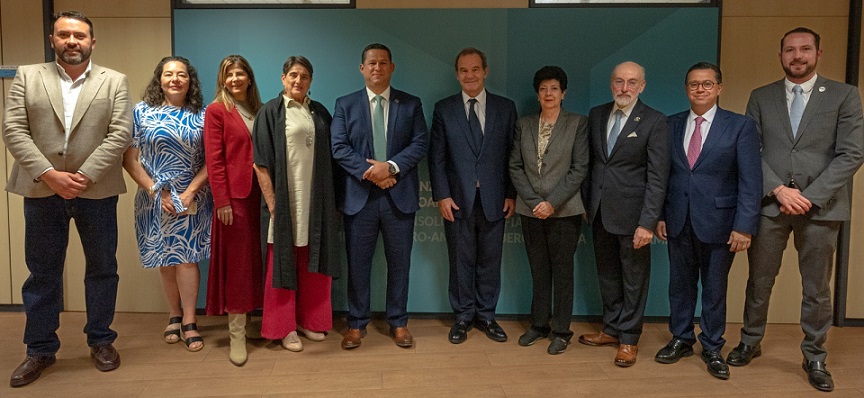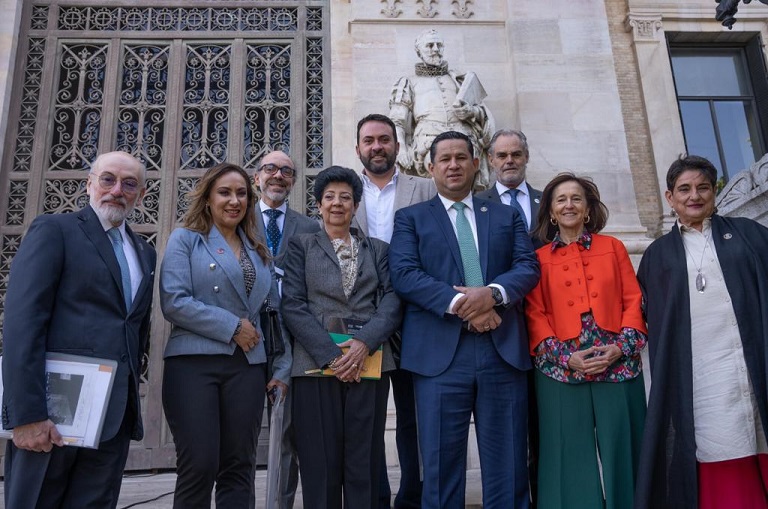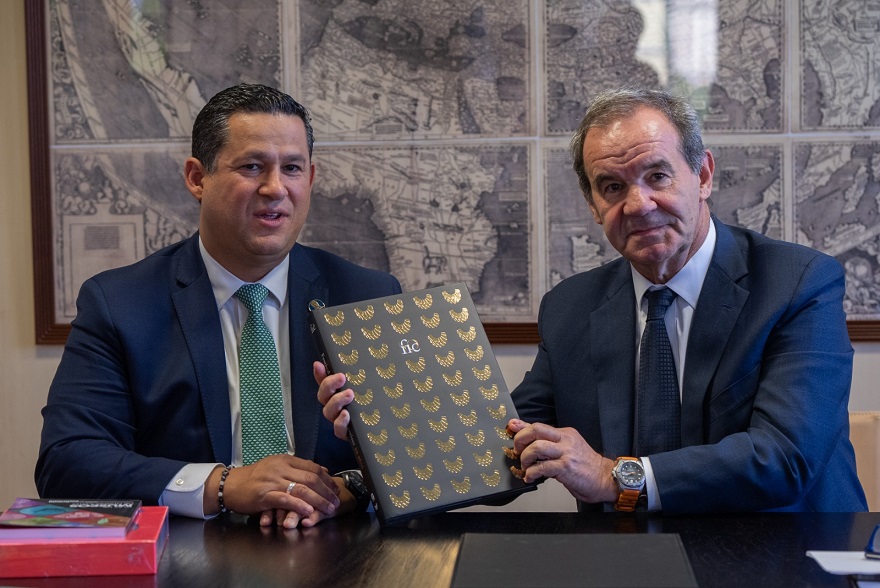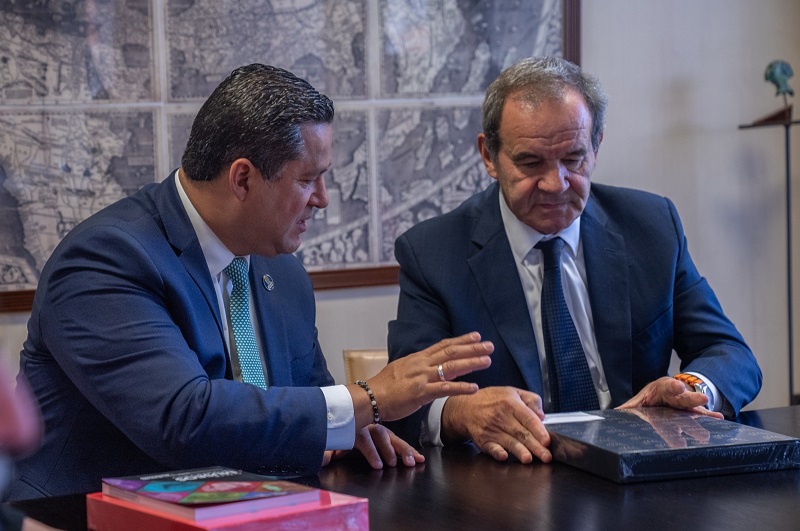Governor of Guanajuato brings the work tour in Spain to an end, important agreements were signed in culture, economy and tourism The world needs m
Governor of Guanajuato brings the work tour in Spain to an end, important agreements were signed in culture, economy and tourism
The world needs more bridges of understanding such as those generated by culture and art, said the Governor
Da click en el link al final de la nota para leer en español:

Madrid Spain/Gto News
“We bring to an end a very important tour where we have made great agreements in cultural, business and tourism matters with Spain”, said the Governor of Guanajuato, Diego Sinhue Rodriguez Vallejo.

“We have met with businessmen from many sectors such as the automotive, aerospace, energy, especially renewable energy, and we had some very productive business visits,” said the Governor on his last day of activities in Spain.

“We have signed collaboration agreements with the Theater, the National Library and with the Prado Museum where we will take some exhibitions, and we will have some collaborations and donations that will benefit the people of Guanajuato”, noted the Governor.
And we were also with the tour operators, with whom a great job has been done, to bring more tourists from Spain to Guanajuato. They are interested in the Wine Route, in the Festivals that are held in Guanajuato, said Rodriguez Vallejo.

The Governor said that there are very important agreements that will benefit the tourism and culture sectors of Guanajuato; “This visit to Spain is a great experience”.
The Governor of Guanajuato held a working meeting with Andrés Allamand, Ibero-American Secretary General.

The purpose of this meeting was to reestablish the dialogue between the Government of Guanajuato and the SEGIB for a comprehensive interaction, in education, Culture and Knowledge, since due to the Covid 19 pandemic it had stopped.
The Ibero-American General Secretary -SEGIB- is an international cooperation organization that supports the 22 countries that make up the Ibero-American community:
- The 19 countries in Latin America that speak Spanish and Portuguese, and those in the Iberian Peninsula, Spain, Portugal and Andorra

The Guanajuato delegation headed by the Governor of Guanajuato visited the Prado National Museum, as well as the National Library of Spain –BNE-, which is one of the most prestigious, oldest and most representative cultural institutions of conservation and cultural diffusion.
With the directors of both institutions, exchanges were agreed and the visit of the authorities of the Prado Museum and the Library of Spain to Guanajuato for cultural events and joint work for culture and reading.

The Museo Nacional del Prado is one of the most popular and recognized places in the world of art, with 3 million annual visitors and an online presence that exceeds 10 million. It is considered the most important cultural institution in Spain, according to the 2022 Observatory of Culture.
The origins of the National Library of Spain date back to 1712, by instructions of King Felipe V. The Library is an autonomous body in charge of depositing Spain’s bibliographic and documentary heritage.

During the Guanajuato Week in Spain, the Governor led the official presentation of the Book “Cervantino International Festival 50 years”, which commemorates the first half century of the main cultural festival in Mexico.
“This book is a work that will preserve for posterity the history of a Festival that was born in Guanajuato, half a century ago, to celebrate with the world the universality and humanism of Cervantes. A Festival that has been a magnificent cultural bridge between Guanajuato and Mexico with the world”, noted the Governor.

“Once again our thanks to Spain for allowing us to share this legacy. The world needs more bridges of understanding like those generated by culture and art. Guanajuato and Spain, we are more united than ever,” said Rodriguez Vallejo.
The Governor of Guanajuato was with the Secretary of Tourism of Guanajuato, Juan José Áglvarez Brunel; and the General Director of the Guanajuato State Institute of Culture, Adriana Camarena de Obeso.
En Español:


